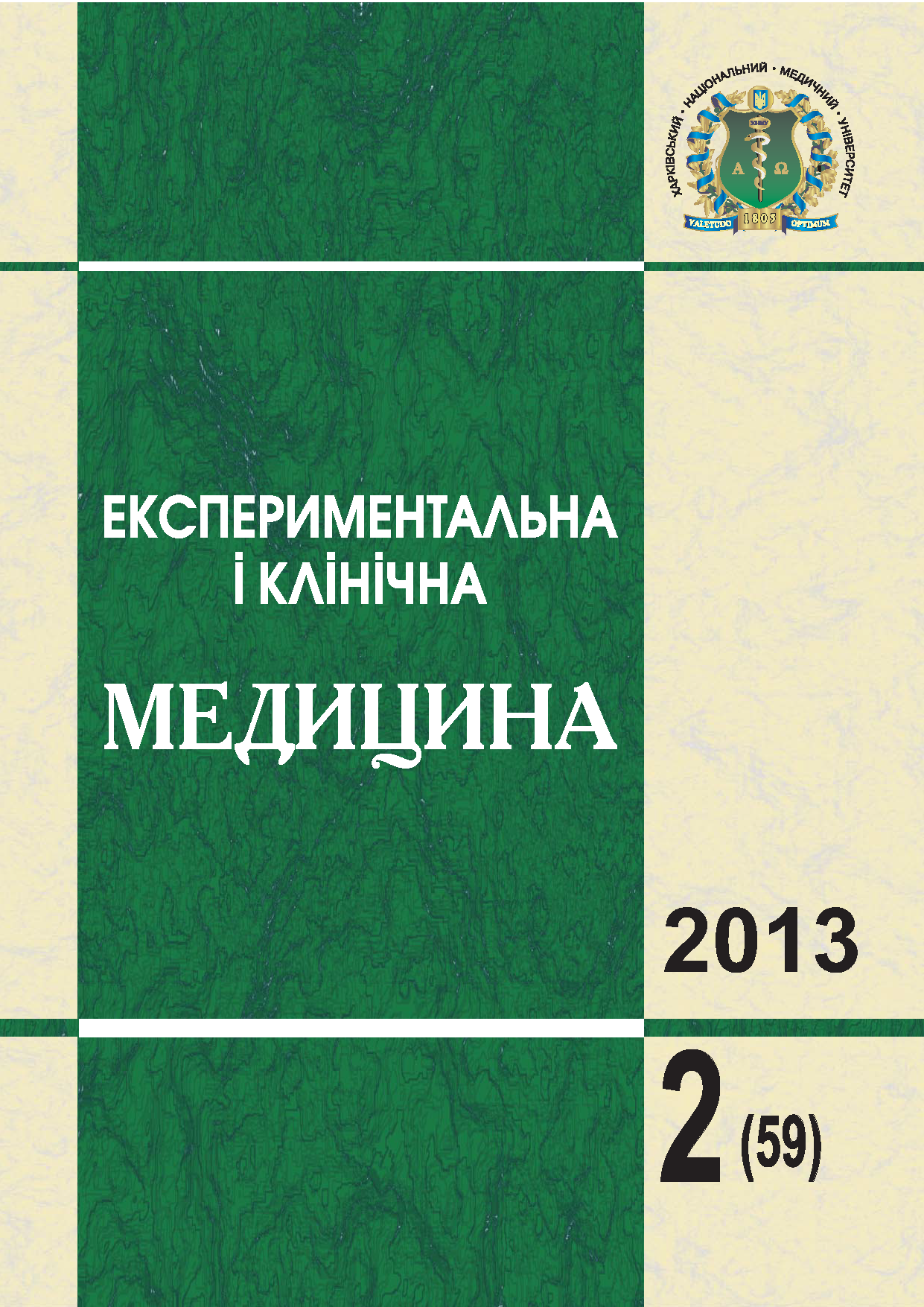Анотація
УДК 616-035: 616.62-.637 В.А. Мороз Национальный фармацевтический университет, г. Харьков СОВРЕМЕННЫЙ ТРЕНД ЛЕКАРСТВЕННОГО ЛЕЧЕНИЯ ИНФЕКЦИЙ НИЖНИХ ОТДЕЛОВ МОЧЕВЫВОДЯЩЕГО ТРАКТА С целью мониторинга изменений в рекомендациях по лекарственному лечению инфекций мочевыводящего тракта (ИМТ) проанализирована их динамика за последние годы по резолюциям и соответствующим публикациям Американской ассоциации урологов в сравнении с Консенсусом 2002 г. В обновлениях последних лет детализированы факторы хронизации ИМТ и выделена специальная группа «корректируемых аномалий». Уточнены признаки «осложнённости» ИМТ, требующие специальных схем применения антибиотиков. В арсенале средств лечения неосложнённых ИМТ (около 80 % случаев) оставлен Ко-тримоксазол, но исключён вариант его однократного приёма. Сделан акцент на критериях эффективности лечения неосложнённых форм заболевания. При осложнённых ИМТ рекомендуемые комбинации антибиотиков продлены до 14 дней приёма (вместо 10 ранее), введены схемы длительного использования Ко-тримоксазола или фторхинолонов при эпидидимите и бактериальном простатите. Для профилактики ИМТ при использовании катетера рекомендуется только периодическое его введение, а при постоянной катетеризации - обязательно применение изделий со специальными покрытиями. Ключевые слова: инфекции мочевых путей, антибактериальная терапия, бактериоурия. В.А. Мороз СУЧАСНИЙ ТРЕНД ЛІКАРСЬКОГО ЛІКУВАННЯ ІНФЕКЦІЙ НИЖНІХ ВІДДІЛІВ СЕЧОВИВІДНОГО ТРАКТУ З метою моніторингу змін у рекомендаціях щодо лікарського лікування інфекцій сечовивідного тракту (ІСТ) проаналізована їх динаміка за останні роки за резолюціями і відповідними публікаціями Американської асоціації урологів у порівнянні з Консенсусом 2002 р. В оновленнях останніх років деталізовані фактори хронізації ІСТ і виділена спеціальна група «коректованих аномалій». Уточнено ознаки «ускладненості» ІСТ, що вимагають спеціальних схем застосування антибіотиків. В арсеналі засобів лікування неускладнених ІСТ (близько 80 % випадків) залишений Ко-тримоксазол, але виключений варіант його одноразового прийому. Зроблено акцент на критеріях ефективності лікування неускладнених форм захворювання. При ускладнених ІСТ рекомендовані комбінації антибіотиків, подовжені до 14 днів прийому (замість 10 раніше), введені схеми тривалого використання Ко-тримоксазолу або фторхінолонів при епідидиміті і бактеріальному простатиті. З метою профілактики ІСТ при використанні катетера рекомендується тільки періодичне його введення, а при постійній катетеризації - обов'язкове застосування виробів зі спеціальними покриттями. Ключові слова: інфекції сечових шляхів, антибактеріальна терапія, бактеріоурія. V.A. Moroz MODERN TREND OF DRUG TREATMENT OF LOWER URINARY TRACT INFECTIONS With the purpose to monitor changes in the recommendations for urinary tract infections UTI's drug treatment analyzed their dynamics over the past few years on the resolutions and corresponding publications of the American Urological Association versus the Consensus 2002. In the last few years updates were detailed factors of chronization of UTI and allocated a special group of «corrected anomalies». Refined signs of «nosocomial» UTI requiring special schemes for antibiotics usage. In the arsenal of treatment for uncomplicated UTI (about 80 % of cases) has been left Co-trimoxazole, but eliminated the possibity of its single dose. Emphasisz is placed on the criteria of the effectiveness of uncomplicated disease treatment. In complicated UTI recommended combination of antibiotics extended to 14 days of treatment (instead of 10 previously), introduced the scheme extended use of Co-trimoxazole or fluoroquinolones for epididymitis and bacterial prostatitis. For prevent UTI at the time of catheter is recommended only periodical of its introduction, and if necessary the use of a constant catheterization necessarily use products with special coatings. Key words: urinary tract infection, antibiotic therapy, bacteriuria. Поступила 25.04.13Посилання
Antibiotic prophylaxis in urologic procedures: a systematic review / A.M. Bootsma, P.M.P. Laguna, S.E. Geerlings [et al.] // Eur. Urol. - 2008. - Vol. 54, № 6. - P. 1270-1286.
Guidelines on Urological Infections, European Association of Urology / M. Grabe, T.E. Bjerklund-Johansen, H. Botto [et al.]. - EAU, 2011. - 112 p.
Nosocomial urinary tract infections (NUTI) in adult patients: Consensus conference 2002, short text // Medecine et maladies infectiouses. - 2003. - Vol. 33 (Suppl.). - S. 218-222.
Shoskes D.A. Urinary tract infections / D.A. Shoskes // Am. Urol. Association Educational Review Manual in Urology / ed. F. Morey, D.A. Shoskes. [3th ed.]. - E&R, 2011. - P. 737-766.
Pouwels K.B. Effect of pravastatin and fosinopril on recurrent urinary tract infections / K.B. Pouwels, S.T. Visser, E. Hak // J. Antimicrob. Chemother. - 2013.- Vol. 68, № 3. - P. 708-714.
Torres M. Gynecologic and other infections in pregnancy / M. Torres, S. Moayedi // Emerg. Med. Clin. North. Am. - 2012. - Vol. 30, № 4. - P. 869-884.
Primary vesicoureteral reflux mediated renal scarring after urinary tract infection in Thai children / P. Vachvanichsanong, P. Dissaneewate, S. Thongmak, A. Lim // Nephrology. - 2008. - Vol. 13, № 1. - P. 38-42.
Risk factors for postoperative urinary tract infection and urinary retention in patients undergoing surgery for colorectal cancer / C.Y. Kang, O.O. Chaudhry, W.J. Halabi [et al.] // Am. Surg. - 2012. - Vol. 78, № 10. - P. 1100-1104.
Integrative review: evidences on the practice of intermittent/indwelling urinary catheterization / F.F. Ercole, T.G. Macieira, L.C. Wenceslau [et al.] // Rev. Lat. Am. Enfermagem. - 2013. - Vol. 21, № 1. - P. 459-468.
Risk Factors for Community-Acquired Urinary Tract Infection Due to Quinolone-Resistant E. coli / M. Prelog, D. Schiefecker, M. Fille [et al.] // Infection. - 2008. - Vol. 36, № 1. - P. 41-45.
Saul P. Managing UTIs in children / P. Saul // Practitioner. - 2007. - Vol. 251, № 1698. - P. 7-10.
Barbosa-Cesnik C. Cranberry juice fails to prevent recurrent urinary tract infection / C. Barbosa-Cesnik, M.B. Brown, M. Buxton [et al.] // Clin. Infect. Dis. - 2011. - Vol. 52, № 1. - P. 23-30.
Risk factors for fluoroquinolone-resistant Escherichia coli in adults with community-onset febrile urinary tract infection / W.E. van der Starre, C. van Nieuwkoop, S. Paltansing [et al.] // J. Antimicrob. Chemother. - 2011.- Vol. 66, № 3. - P. 650-656.
